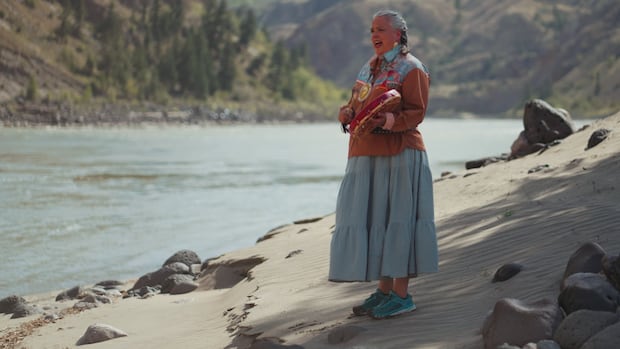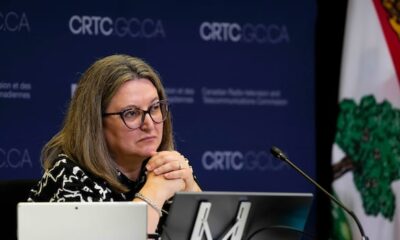Education
University of Victoria Launches Project to Rebuild Indigenous Law

A new initiative at the University of Victoria is set to assist Indigenous communities in reconstructing their legal frameworks. The project, titled Next Steps: Rebuilding Indigenous Law, involves a team of researchers from the Secwépemc Nation, including Racelle Kooy, Sunny LeBourdais, and Bonnie Leonard. Their research will utilize oral teachings, community dialogues, and historical documentation to explore the foundations of Secwépemc law.
The project draws inspiration from a book written by a linguist that acknowledges both Kooy’s late aunt, Mary Palmantier, and her great aunt, Lily Harry. Kooy emphasizes that the objective is not to supplant existing British Columbian or Canadian laws but to incorporate new perspectives on legal matters. The initial focus includes two significant research questions related to Secwépemc laws concerning trade, economy, and inter-societal relations—topics Kooy describes as highly relevant in today’s context.
In an interview with CBC News, Kooy stated, “Why not get a fresh perspective that’s calling upon ancestral knowledge and coming forward? That’s really the purpose of law. It’s to serve and challenge people—to look at how we are solving the issues of today.”
Researching Secwépemc Law and Broader Indigenous Perspectives
The decision to examine the Secwépemc Nation’s laws stems from the extensive groundwork laid by previous leaders over the past 16 years. Their research has delved into various aspects of governance, including land and resource management, citizenship, and child and family law. The Indigenous Law Research Unit (ILRU) at UVic is spearheading the initiative under the leadership of law professor Val Napoleon, who serves as the academic lead for the Next Steps project.
Napoleon clarified that while the ILRU focuses on specific legal elements, such as child and family law, the Next Steps project aims to create five comprehensive examples of Indigenous legal orders that can serve as models for Canada. Instead of concentrating solely on individual nations, the research will encompass a broader spectrum of Indigenous societies. The Secwépemc Nation consists of 17 First Nations situated in a region of British Columbia.
The initiative does not center on particular types of law, such as the Criminal Code. Rather, it seeks to address overarching legal questions concerning morality, social interactions, and environmental stewardship. Napoleon stated, “What we’re doing is making visible and cognizable Indigenous ways of legal thought, Indigenous legal processes, and ways that people hold each other accountable.”
Funding and Community Engagement
The Law Foundation of B.C. has allocated $10 million to support this groundbreaking program. This funding will facilitate ongoing research and community engagement, ensuring that Indigenous voices are central to the development of their legal systems.
Napoleon stressed the importance of approaching these topics with creativity and open-mindedness, aiming to tackle significant questions confronting society today. She concluded, “We can take care of one another,” underscoring the communal aspect of Indigenous legal frameworks.
The Next Steps project represents a vital effort to revitalize Indigenous legal traditions, providing a platform for the Secwépemc Nation and potentially other Indigenous communities to shape their legal landscapes in contemporary society.
-

 Politics3 weeks ago
Politics3 weeks agoSecwepemc First Nation Seeks Aboriginal Title Over Kamloops Area
-

 World4 months ago
World4 months agoScientists Unearth Ancient Antarctic Ice to Unlock Climate Secrets
-

 Entertainment5 months ago
Entertainment5 months agoTrump and McCormick to Announce $70 Billion Energy Investments
-

 Lifestyle4 months ago
Lifestyle4 months agoTransLink Launches Food Truck Program to Boost Revenue in Vancouver
-

 Science5 months ago
Science5 months agoFour Astronauts Return to Earth After International Space Station Mission
-

 Technology3 months ago
Technology3 months agoApple Notes Enhances Functionality with Markdown Support in macOS 26
-

 Top Stories2 months ago
Top Stories2 months agoUrgent Update: Fatal Crash on Highway 99 Claims Life of Pitt Meadows Man
-

 Lifestyle3 months ago
Lifestyle3 months agoManitoba’s Burger Champion Shines Again Amid Dining Innovations
-

 Politics4 months ago
Politics4 months agoUkrainian Tennis Star Elina Svitolina Faces Death Threats Online
-

 Sports5 months ago
Sports5 months agoSearch Underway for Missing Hunter Amid Hokkaido Bear Emergency
-

 Politics4 months ago
Politics4 months agoCarney Engages First Nations Leaders at Development Law Summit
-

 Technology5 months ago
Technology5 months agoFrosthaven Launches Early Access on July 31, 2025




















